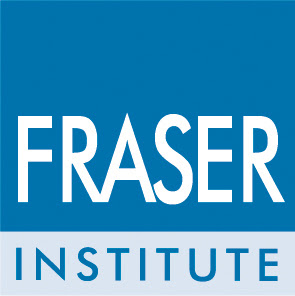
Pipelines key to raising living standards in remote, poor Indigenous communities
CALGARY—A large number of small, remote and fairly poor First Nations in British Columbia and Alberta support pipelines because they stand to gain substantially from them, finds a new study released today by the Fraser Institute, an independent, non-partisan Canadian public policy think-tank.
“Pipelines can be economic lifelines for many remote Indigenous communities and offer, perhaps, the only real chance to raise living standards, which is why it’s not surprising so many First Nations support pipeline projects,” said Tom Flanagan, Fraser Institute senior fellow, professor emeritus of political science at the University of Calgary and author of How First Nations Benefit from Pipeline Construction.
The study finds that pipeline-benefit agreements with First Nations are worth potentially billions of dollars—both in terms of revenue and employment—and many of the communities that support several notable pipeline projects desperately need increased economic development.
For example, average family incomes among the 43 First Nations who support the Kinder Morgan Trans Canada pipeline—mostly small and remote communities with few people and very limited opportunities for economic development—are about half of the average family incomes of their respective provinces.
In fact, in B.C., the average family income for the First Nations that support the Trans Canada pipeline was just $21,346 in 2010, the most recent year of available data, compared to $39,415 for the average family income for the entire province.
In Alberta, the income variance is even greater. First Nations who support the Trans Canada pipeline had a 2010 average family income of $18,422 compared to $50,956 for the entire province.
Previous research has shown that First Nations people employed in the oil and gas sector have incomes almost three times higher than other First Nations incomes, and First Nations pipeline workers have incomes that are four times higher.
“Many First Nations that oppose Kinder Morgan and other pipeline projects are fortunate to be located near Vancouver where they can pursue other economic opportunities such as housing, shopping and entertainment developments,” Flanagan said.
“But those opportunities are not available to remote First Nations that must rely on responsible resource development projects like pipelines for their economic prosperity.”
Follow the Fraser Institute on Twitter | Like us on Facebook
The Fraser Institute is an independent Canadian public policy research and educational organization with offices in Vancouver, Calgary, Toronto, and Montreal and ties to a global network of think-tanks in 87 countries. Its mission is to improve the quality of life for Canadians, their families and future generations by studying, measuring and broadly communicating the effects of government policies, entrepreneurship and choice on their well-being. To protect the Institute’s independence, it does not accept grants from governments or contracts for research. Visit www.fraserinstitute.org
Share This:





 CDN NEWS |
CDN NEWS |  US NEWS
US NEWS 



































China’s Transition Hampered by Flat-Lining Energy Intensity